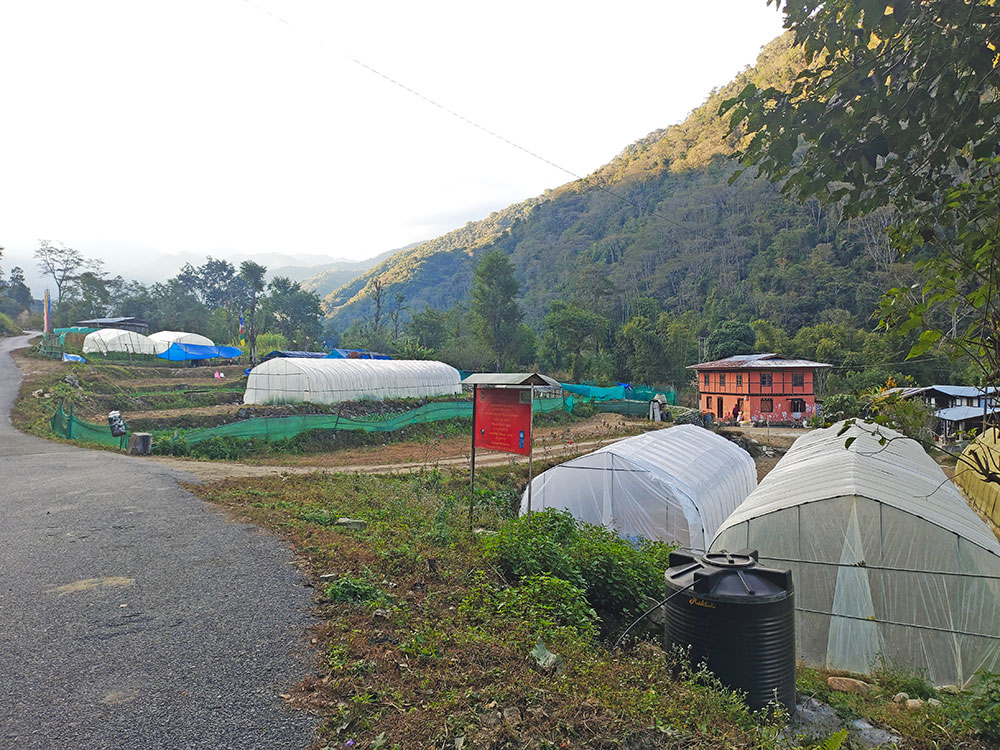… they will supply organic vegetables
Lhakpa Quendren
Sarpang — Farmers engaged in agriculture and livestock farming in one of the most remote gewogs of Sarpang, Chhudzom face challenges from poor road conditions and water scarcity.
For instance, the organic vegetable production groups initiated by the gewog administration, five years ago, were currently struggling to survive, as most group members failed to meet the initiative’s intended objectives.
Bhim Prasad, 31, the chairperson of upper Lhayul’s vegetable production group with 12 members, said the initial three years were successful as they could sell more vegetables during the pandemic.
“Our hard work is going to waste now as in addition to the water shortage, deer and frost damaged the vegetables during the winter,” he said.
This year the farmers had not been able to sell winter-grown vegetables such as broccoli, cabbage, beans, cauliflowers, and spinach.
Tika Maya Baskota, a 27-year-old group member in Lhayul, cultivates vegetables on 30 decimals of land. “I couldn’t sell any vegetables this year, compared to the Nu 4,000 worth of vegetables I sold last year,” she said.
“Water is only available during the monsoon, and in winter, we have to fetch water from a source far away. As vegetable cultivation requires plenty of water, we have raised this issue several times with the relevant officials in the social media group,” she said.
In addition, reaching the vegetable market in Gelephu was also expensive, said Bhaghi Rath Khandal, 46, a member of Lower Lhayul’s vegetable group.
The Chhudzom gewog administrative officer, Yenten Jamtsho, said the issues farmers were facing would be solved with the on-going road maintenance and water supply project.
The blacktopping of Chhudzom gewog center road is almost completed, and a water flagship programme is in the pipeline. The improved roads, and sufficient water are expected to boost the vegetable production in Chhudzom gewog in Sarpang.
There were four organic vegetable groups in the gewog, and the members had received polyhouses from the government through a cost-sharing scheme to grow seedlings. Each member deposits Nu 360 annually into their respective group’s savings account for the procurement of farming tools.
For the 35 members of the organic model village in Gungring, expanding their vegetable farm is a priority, given the potential opportunities Gelephu is going to provide.
They have sufficient water for their vegetable farming, and most of their produce was sold to nearby schools, restaurants, and residents, and Gelephu town.
The village started organic farming, discontinuing the use of fertilizers and chemicals in 2018. In the following year, an organic village model was established with the help of the government. GEF-LDCF funded the project with necessary resources, such as polyhouses, mulching plastic, and seeds.


